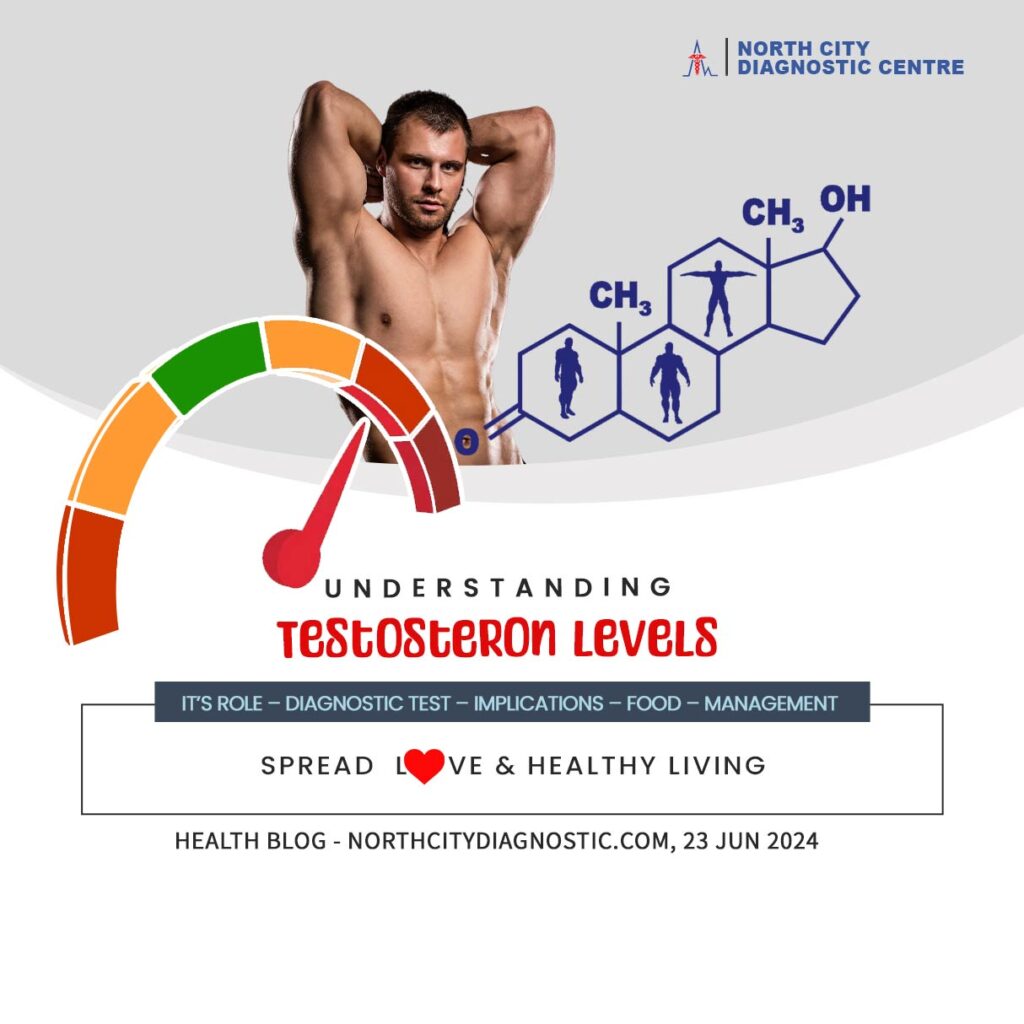
Menu
It was a crisp morning in Kolkata when Arjun, a 35-year-old tech professional, found himself unusually fatigued and irritable. His once stellar performance at work was slipping, and even his enthusiasm for weekend cricket games was waning. Concerned, Arjun visited his doctor, who suggested a series of tests, including one for testosterone levels. This simple test turned out to be a pivotal moment in Arjun’s life, revealing insights about his health that he never expected.
Testosterone is often dubbed the “hormone of masculinity,” but its influence extends far beyond just defining male characteristics. This potent androgen plays a critical role in various bodily functions, impacting everything from mood and energy levels to muscle mass and bone density. Understanding testosterone levels is crucial for both men and women, as it helps in diagnosing potential health issues and guiding appropriate treatments.

Testosterone is a steroid hormone predominantly p roduced in the testes in men and the ovaries in women, albeit in much smaller quantities. Additionally, the adrenal glands in both sexes contribute to its production. The hypothalamus and pituitary gland in the brain regulate the secretion of testosterone through a delicate feedback system.
In men, the Leydig cells in the testes are responsible for testosterone synthesis, which is stimulated by the luteinizing hormone (LH) released from the pituitary gland. Once produced, testosterone travels through the bloodstream to various tissues, exerting its effects by binding to androgen receptors.
Testosterone’s roles are multifaceted and vital for numerous physiological processes:
It drives the development of male reproductive tissues and secondary sexual characteristics like facial hair, deepening of the voice, and increased muscle mass.
Testosterone promotes muscle growth and the maintenance of bone density, helping to prevent osteoporosis.
It influences mood, energy levels, and cognitive functions, contributing to overall mental health.
It is essential for libido and erectile function in men.
Elevated testosterone levels, although less common, can lead to various health issues:
On the flip side, low testosterone levels, a condition known as hypogonadism, can have significant impacts:
To diagnose testosterone levels, healthcare providers use several tests:
Hormone Replacement Therapy (HRT)
The primary treatment for low testosterone levels is TRT. This therapy aims to restore testosterone levels to a normal range using various delivery methods:
Monitoring and Adjustments
Patients undergoing TRT require regular monitoring to ensure the therapy is effective and to adjust dosages as necessary. Monitoring typically includes:
Addressing Underlying Causes
Sometimes, low testosterone is due to treatable underlying conditions. Addressing these can help restore normal hormone levels:
While less common, high testosterone levels can also require medical intervention. Treatment strategies depend on the underlying cause.
Medications
Anti-androgens: These medications block the effects of testosterone and other androgens. They are often used in conditions like prostate cancer or hirsutism (excessive hair growth in women).
GnRH (Gonadotropin-Releasing Hormone) Agonists: These medications reduce testosterone production by affecting the pituitary gland.
High testosterone can sometimes result from specific medical conditions that need to be addressed:
In some cases, lifestyle changes can help manage high testosterone levels:
Hormone imbalances, whether high or low, can significantly affect mental health. Incorporating psychological and supportive therapies can improve overall well-being:
There is ongoing research into the relationship between testosterone levels and cancer. Prostate cancer is a significant concern, as testosterone can fuel the growth of prostate cancer cells. However, the relationship is complex, and low testosterone levels have also been associated with a higher risk of aggressive prostate cancer. Therefore, monitoring and maintaining balanced testosterone levels is essential for overall health and cancer prevention.
Reflecting on Arjun’s story, understanding and managing testosterone levels is a crucial aspect of maintaining overall health and well-being. Through balanced nutrition, regular exercise, and proactive healthcare, individuals can optimize their testosterone levels and enjoy a healthier, more vibrant life.
Testosterone levels play a pivotal role in our daily lives, influencing physical, mental, and sexual health. By staying informed and vigilant, we can ensure that this powerful hormone continues to serve us well throughout our lives. Arjun’s journey serves as a reminder that sometimes, a simple test can unlock the secrets to better health and a more fulfilling life.
At North City Diagnostic Center we offer personalized testing schedule that aligns with your medical history and risk factors. Consistent monitoring can be invaluable for early detection and effective management of arthritis. It’s not just about how often you test but making sure that the tests are aligned with your overall health profile for maximum benefit.
#TestosteroneLevels #Health #Wellness #HormoneBalance #MensHealth #HealthyLiving #NDC #HealthFirst #NorthCity #DiagnosticServices
35-A ,Canal West Road
Near Gouri Bari Bus Stop
Kolkata – 700004.
Local: +91 33 6605 0888